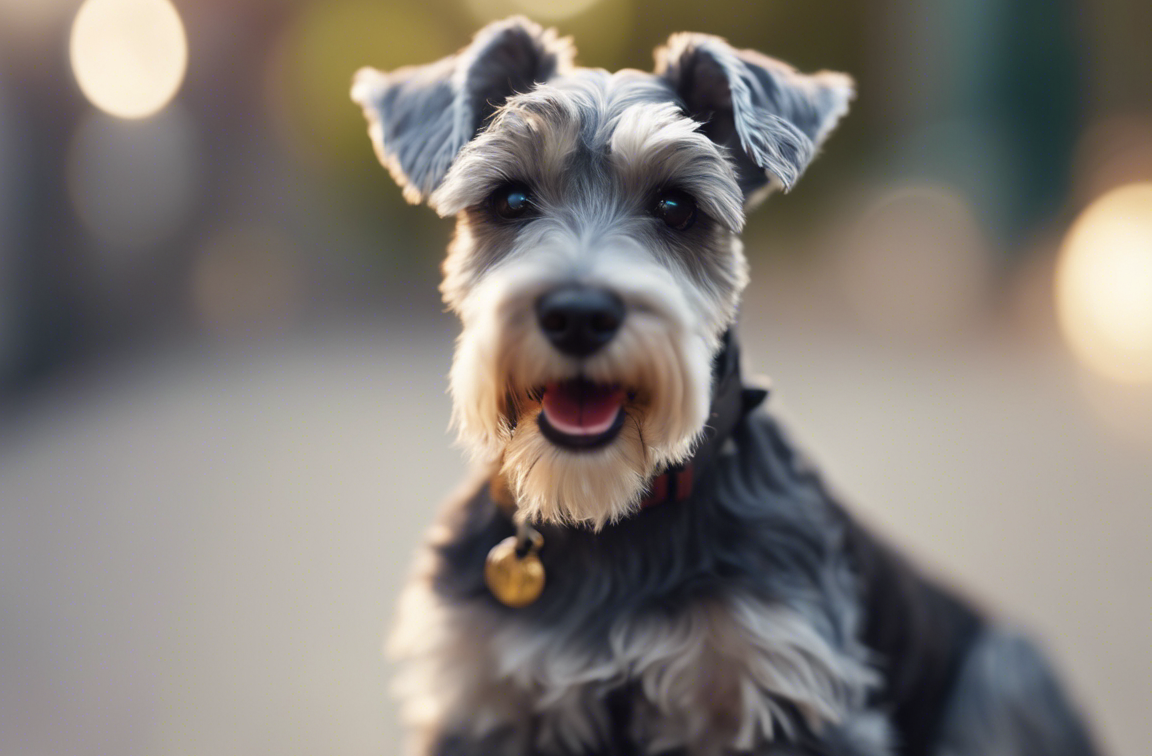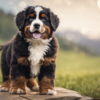When it comes to finding the perfect furry friend, there are countless breeds to choose from. However, if you’re looking for a small but spirited companion, look no further than the miniature schnauzer. With their distinctive beards and bushy eyebrows, these pint-sized pups are as charming as can be. Whether you’re a seasoned dog owner or a first-timer, the miniature schnauzer is sure to steal your heart with their affectionate nature and playful personality.
Originating in Germany, the miniature schnauzer is a breed that has captivated dog lovers around the world. They were initially bred as farm dogs to catch vermin, but their intelligence and loyalty soon made them popular as family pets. Today, they are known for their versatility and adaptability, fitting in just as well in a bustling city apartment as they do on a sprawling countryside estate.
In this comprehensive guide, we’ll take a closer look at the miniature schnauzer, covering everything from their appearance and history to their temperament, health, exercise needs, training requirements, grooming, and nutrition. By the end, you’ll have a deep understanding of this delightful breed and why they make such fantastic companions.
Appearance
The miniature schnauzer is a small but sturdy breed, typically weighing between 10 to 15 pounds (4.5 to 6.8 kilograms). They stand at around 12 to 14 inches (30 to 36 centimeters) tall at the shoulder, making them the perfect size for both apartment dwellers and families with children. Despite their small stature, these dogs have a robust build with a square-shaped body and a well-muscled chest.
One of the most distinctive features of the miniature schnauzer is their facial hair. They sport a prominent beard and bushy eyebrows that give them a wise and dignified appearance. Their eyes are dark and lively, always alert to their surroundings. The breed comes in a variety of coat colors, including salt and pepper, black, and black and silver, with a dense, wiry double coat that protects them from the elements.
Miniature schnauzers have a charming trot that exudes confidence and energy. Their tail is typically docked in countries where it is still permitted, giving them a distinctive silhouette. Overall, their appearance is both elegant and rugged, showcasing their unique blend of style and substance.
History
The history of the miniature schnauzer can be traced back to 19th-century Germany. They were developed by crossing standard schnauzers with smaller breeds, such as the affenpinscher and poodle, to create a compact version of the original schnauzer. The goal was to create a versatile and efficient farm dog that could excel at catching rats and guard the property.
As the years went by, the miniature schnauzer’s role shifted from a working dog to a beloved companion. Their amiable nature and intelligence made them a hit with families, and they quickly rose in popularity. The breed was officially recognized by the American Kennel Club (AKC) in 1926 and has remained a cherished breed ever since.
Today, the miniature schnauzer is known for its versatility. They excel in various dog sports, including obedience, agility, and even tracking. Their adaptability allows them to thrive in different environments, from bustling city apartments to suburban homes with large yards. No matter where they find themselves, one thing is for sure: the miniature schnauzer brings joy and love wherever they go.
Temperament
When it comes to temperament, the miniature schnauzer is a true gem. They are known for their friendly and outgoing nature, making them a fantastic addition to any family. These dogs are incredibly sociable and love being around people, making them the perfect choice for households with children or other pets.
Miniature schnauzers are intelligent and eager to please, which makes training them a breeze. They quickly pick up on commands and love having a job to do. However, they can be a bit stubborn at times, so it’s essential to establish yourself as the pack leader and provide consistent and positive reinforcement during training sessions.
While miniature schnauzers are generally good-natured, they can be a bit wary of strangers. Early socialization is crucial to ensure they grow up to be confident and well-rounded dogs. Exposing them to different people, animals, and environments from a young age will help them develop into friendly and outgoing adults.
Health
When it comes to health, the miniature schnauzer is generally a robust and healthy breed. However, like all dogs, they are prone to certain health conditions that potential owners should be aware of. One common health issue in this breed is pancreatitis, an inflammation of the pancreas that can cause severe abdominal pain and digestive issues.
Another condition that miniature schnauzers are predisposed to is bladder stones. These painful stones can form in the urinary tract and may require surgical removal. Regular veterinary check-ups and a balanced diet can help minimize the risk of developing these stones.
Additionally, miniature schnauzers are prone to certain genetic conditions, such as progressive retinal atrophy (PRA) and von Willebrand’s disease. PRA is a degenerative eye disease that can lead to blindness, while von Willebrand’s disease is a bleeding disorder. Responsible breeders will perform health screenings on their breeding dogs to ensure they are not passing on these genetic conditions to their puppies.
Overall, with proper care, a nutritious diet, regular exercise, and routine veterinary check-ups, the miniature schnauzer can live a long and healthy life, bringing joy to their owners for many years to come.
Exercise
Despite their small size, miniature schnauzers have a surprising amount of energy. They require regular exercise to keep both their bodies and minds healthy. A daily walk or play session in the backyard is usually sufficient to meet their exercise needs.
In addition to physical exercise, mental stimulation is equally important for miniature schnauzers. They are highly intelligent dogs that thrive on mental challenges. Engaging them in activities such as puzzle toys, obedience training, or even agility courses can help keep their minds sharp and prevent boredom and destructive behaviors.
However, it’s essential to remember that each dog is unique, and exercise requirements may vary. Some miniature schnauzers may have higher energy levels and may benefit from additional exercise, while others may be more laid-back. Paying attention to your dog’s individual needs and adjusting their exercise routine accordingly is key to keeping them happy and healthy.
Training
Training a miniature schnauzer is a rewarding experience for both the dog and the owner. These intelligent and eager-to-please dogs excel in obedience training and can quickly learn a wide range of commands and tricks.
Positive reinforcement training methods work best for miniature schnauzers. They respond well to praise, treats, and play rewards. Harsh training methods or punishment can damage their sensitive nature and hinder the training process.
Consistency and patience are essential when training a miniature schnauzer. Short, frequent training sessions are more effective than long, tedious ones. Breaking down commands into small steps and gradually increasing difficulty will help your dog succeed and build their confidence.
Remember to make training sessions fun and engaging. Miniature schnauzers love to be mentally stimulated and enjoy the opportunity to show off their intelligence. With the right approach, training a miniature schnauzer can be an enjoyable journey that strengthens the bond between you and your four-legged friend.
Grooming
Grooming a miniature schnauzer is an important part of their care routine. Their wiry double coat requires regular maintenance to keep it looking its best. The breed does not shed much, making them a good choice for individuals with allergies.
Regular brushing is necessary to prevent matting and keep their coat healthy. Using a slicker brush or a comb specifically designed for wiry coats will help remove any tangles or loose hairs. Additionally, hand-stripping the coat a few times a year can help maintain its texture and color.
Miniature schnauzers are known for their distinctive facial hair. Regular trimming around the eyes and mouth is necessary to prevent irritation and keep their appearance tidy. Some owners choose to hand-strip the eyebrows and beard for a more natural look, while others prefer to have them professionally groomed.
Other grooming tasks for miniature schnauzers include regular nail trims, ear cleaning, and dental care. It’s important to establish a grooming routine from a young age to make the process enjoyable for both you and your dog. With proper grooming, your miniature schnauzer will always look their best and feel comfortable in their own skin.
Nutrition
A well-balanced diet is crucial for the overall health and well-being of a miniature schnauzer. Providing them with high-quality dog food that meets their nutritional needs is essential. Consult with your veterinarian to determine the right type and amount of food for your dog, taking into account factors such as their age, weight, activity level, and any specific dietary requirements.
Miniature schnauzers are prone to weight gain, so it’s important to monitor their calorie intake and avoid overfeeding. Obesity can lead to a range of health issues, including joint problems, diabetes, and heart disease. Feeding your dog regular meals and avoiding excessive treats will help keep them at a healthy weight.
In addition to a balanced diet, access to fresh water at all times is essential. Proper hydration is necessary for your dog’s overall health and helps maintain their coat’s shine and their skin’s elasticity.
Conclusion
The miniature schnauzer is a delightful breed that brings joy and companionship into the lives of countless dog owners around the world. With their charming appearance, friendly temperament, and versatile nature, it’s no wonder they are such popular pets. However, owning a miniature schnauzer is not without responsibilities. From providing proper care, training, and nutrition to ensuring they receive regular veterinary check-ups, being a dog owner requires dedication and love.
By understanding the unique traits and needs of the miniature schnauzer, you’ll be well-equipped to provide them with the happy and fulfilling life they deserve. So, whether you’re already a proud miniature schnauzer owner or considering adding one to your family, know that you’re in for a lifetime of love, laughter, and unforgettable moments with these incredible dogs.
Frequently Asked Questions
Are Miniature Schnauzers good with children?
Yes, Miniature Schnauzers are generally good with children. They are known for their friendly and affectionate nature. However, as with any dog breed, interaction between dogs and children should always be supervised to ensure the safety of both.
Do Miniature Schnauzers require a lot of exercise?
Yes, Miniature Schnauzers are an active breed and require regular exercise to keep them mentally and physically stimulated. Daily walks, playtime, and interactive toys are important to meet their exercise needs.
How often should I groom my Miniature Schnauzer?
Miniature Schnauzers should be groomed regularly. Their wiry coat needs brushing a few times a week to prevent matting. They also require professional grooming every 6 to 8 weeks to maintain their appearance and keep their coat healthy.


